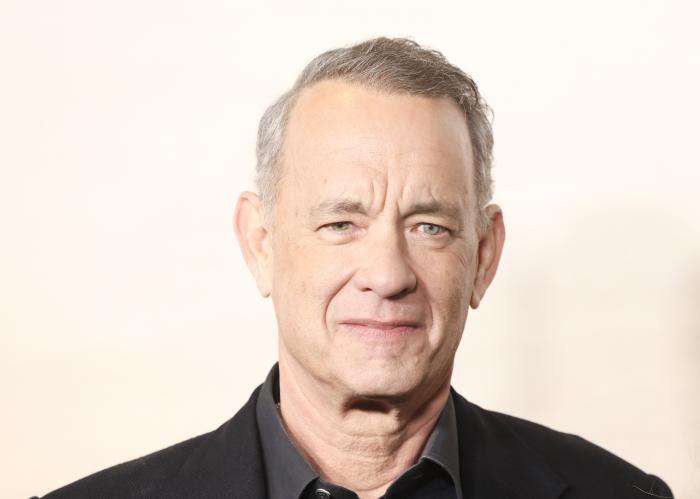

Crazy, Crazy for Feeling
By Brian Prisco | Film | December 1, 2009 |
By Brian Prisco | Film | December 1, 2009 |
Very rarely does Hollywood do lady-crazy well. Usually, screenwriters pen female character depth as if everyone is constantly on their period at all times. They assume by having a woman burst into histrionics every five seconds somehow this will earn them an Oscar. Watch every single solitary performance that’s won an award over the past decade: either the character stoically attempts not to cry while she gives an impassioned speech, the character hollers like a banshee, or she actually uncorks the waterworks. It’s at least 85 percent. But when lady-crazy is done well — Who’s Afraid of Virginia Woolf?, Mommy Dearest, even 9 to 5 to a lesser extent — it’s potent and wonderful. The Private Lives of Pippa Lee doesn’t contain within it a single solitary stable female character (truth be told, male either). Every scene has the actressin’ running the emotional scales like Whitney Houston being car-battery electrocuted by Al Leong for the “American Idol” Halftime Show, but it never feels forced or unnatural. It’s a mature and smartly dark coming of middle-age dramedy about a woman trying to rediscover herself. Under any other circumstance, this film would reek of so much Oprahosterone that it would fail a Literary Olympic drug test, but for some reason, it works, even if does so awkwardly.
The film opens with Pippa Lee (Robin Wright Penn) hostessing a dinner party for her much older husband Herb (Alan Arkin) and their friends at their home in a retirement community. Pippa seems to be the sounding board for other people’s problems, from her frustrated friend Sandra (Winona Ryder) and her unhappy marriage to her older neighbor Dot (Shirley Knight) and her broken-hearted asshole son (Keanu Reeves) moving back home at 35. As Pippa’s life moves forward, we study her past through flashback — where Young Pippa is played by Blake Lively. Pippa tries to help her maniac pill-popping mother (Maria Bello), but the pressure starts crushing her, so she flees to her lesbian aunt Trish (Robin Weigert). When her aunt catches her posing for naughty photos with her artiste/dirty shutterbug roommate Kat (Julianne Moore), Pippa once more flees out in to the streets. At this point, she basically becomes a slightly nor’easter version of Kate Hudson in Almost Famous. Her life is cigarettes and art shows, drugs and forgetting which boy’s her boyfriend. It’s at this point she meets her husband-to-be Herb, who teaches her that she’s worth something. She also becomes the wedge that breaks apart Herb and his current wife Gigi (Monica Bellucci). An unspeakable tragedy hits her at this point, which kind of explains how she can end up almost dead inside and married to a man almost twice her age again. If this description seems a little wandering, it’s because this is how it’s portrayed in the film. We watch her life crumble in the present as we watch how it repeatedly crumbled in the past. Pippa endures, metamorphoses, and becomes a different person with each reemergence.
The overarching question of The Private Lives of Pippa Lee is why. Why is she married to an older man, why does her daughter hate her, why does Keanu Reeves have a giant tattoo of Jesus on his chest? It’s reminiscent of The World According to Garp, if anything else. We watch Pippa Lee slowly endure this seemingly mundane life until it causes her to come undone. Not with slow unraveling but a rending, and not with passion but a quiet certainty. Most filmmakers would have opted for the fireworks, because flashiness is easier to sell, but Miller shows a remarkable restraint. She sets forward inexplicabilities and then — through flashback or reveal — explains them. Which is savagely ironic considering the message of the film seems to be that life is a constant surprise. So while you do get answers, most of the time they seem to be: Because that’s the way things are. But the success of the film really banks on whether or not you actually care about Pippa, and frankly, I didn’t. But that’s due more to my personal cynicism and rejection of feminist ideals. While some people thought the ending of Kate Chopin’s The Awakening might have been a victory over an oppressive male domineering society, I just thought some miserable broad walked into the ocean.
The effectiveness of the performances comes from the trust of writer-director Rebecca Miller to let her characters contradict cliches. In a scene where you expect someone to cry, they laugh, or don’t respond at all. Sure, there are plenty of scenes which smack of Lifetime, but Miller throws enough unbalance into the mixture that old hat looks fashionable. The temperature of every scene fluctuates and so do the characters. Every female character in the movie is given a juicy and satisfying role: it’s easily the most remarkable part of the film. What’s particularly enticing is that the women are allowed to be insane and still funny. The pain and maudlin is played equally for humor as it is for sincerity, and it’s kinda wonderful. Winona Ryder is heartbreakingly hilarious as Sandra cause she’s finally given a character that doesn’t expect her to use her sad goth face. Robin Wright Penn hasn’t been this good since Princess Buttercup. As Pippa, it’s not the scenes where she breaks down that are startling, but rather her ability to go completely emotionless. I want to give most of the credence to the writing, but she’s able to give an incredibly nuanced performance, vulnerable and childlike to almost dead. The men are pretty good too, from the understated grumpiness of Alan Arkin to Keanu’s faux-enlightened cretin. For once, it’s the fellas who are relegated to the reactionary roles, and it doesn’t feel as vengeful as it should.
THE END OF THIS REVIEW MIGHT GET SPOILERY.
The Private Lives of Pippa Lee reminds me a lot of Adrienne Shelley’s excellent Waitress, as the victory in the end is moving on from the old life. It’s actually an intensely bold neo-feminist statement: that a mother can pretty much abandon her entire life to find something new. I sided more with the son Ben (Ryan McDonald) in his one moment of fragility, where he looks confused as his mother pretty much announces she’s out. It’s not to say Pippa didn’t earn it, and also she’s waited until her children are grown and her husband is out of her life. It just doesn’t feel like a victory to me, because there’s nothing to say that Pippa’s going to be any happier. In fact, at every other juncture in her life that brooked change, it’s only ended in great tragedy — usually death or heartbreak. But if Pippa’s cool with it, I guess there’s no reason for me to feel so down.
More Like This
'Hundreds of Beavers' Turns the Silent Movie Wackiness Up To Eleven
Review: ‘Greedy People’ Really Wants to be a Coen Brothers Film When it Grows Up
A Box Office Preview of the Deadest Movie Weekend of the Year
Review: Sweet Sticky 'Strange Darling' Is Rom-Com For Psychopaths
Julia Fox Manifested Her Latest Role

Tom Hanks Is Not Trying To Sell You Drugs
Three Trailers: What Happened Before Rosemary's Baby, and Zoe Saldaña In Her Own Skin
Jack White Threatens 'Fascists' In Donald Trump's Campaign With A Lawsuit
Taylor Swift Has a Brittany Mahomes Problem
'The Acolyte's Amandla Stenberg Got Thrown to the Wolves
Christina Aguilera Thinks It’s ‘Corny’ When Celebrities ‘Do Things Intentionally’ to Stay Relevant
Pajiba Love

Taylor Swift Has a Brittany Mahomes Problem
Reviews